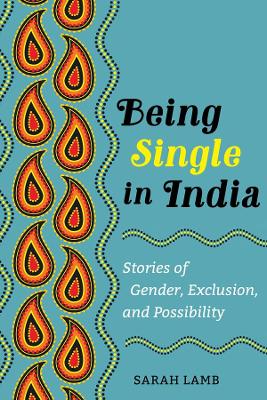Ethnographic Studies in Subjectivity
1 primary work
Book 15
A free open access ebook is available upon publication. Learn more at www.luminosoa.org.
Today, the majority of the world's population lives in a country with falling marriage rates, a phenomenon with profound impacts on women, gender, and sexuality. In this exceptionally crafted ethnography, Sarah Lamb probes the gendered trend of single women living in India, examining what makes living outside marriage for women increasingly possible and yet incredibly challenging. Featuring the stories of never-married women as young as 35 and as old as 92, the book offers a remarkable portrait of a way of life experienced by women across class and caste divides, from urban professionals and rural day laborers, to those who identify as heterosexual and lesbian, to others who evaded marriage both by choice and by circumstance. For women in India, complex social-cultural and political-economic contexts are foundational to their lives and decisions, and evading marriage is often an unintended consequence of other pressing life priorities. Arguing that never-married women are able to illuminate their society's broader social-cultural values, Lamb offers a new and startling look at prevailing systems of gender, sexuality, kinship, freedom, and social belonging in India today.
Today, the majority of the world's population lives in a country with falling marriage rates, a phenomenon with profound impacts on women, gender, and sexuality. In this exceptionally crafted ethnography, Sarah Lamb probes the gendered trend of single women living in India, examining what makes living outside marriage for women increasingly possible and yet incredibly challenging. Featuring the stories of never-married women as young as 35 and as old as 92, the book offers a remarkable portrait of a way of life experienced by women across class and caste divides, from urban professionals and rural day laborers, to those who identify as heterosexual and lesbian, to others who evaded marriage both by choice and by circumstance. For women in India, complex social-cultural and political-economic contexts are foundational to their lives and decisions, and evading marriage is often an unintended consequence of other pressing life priorities. Arguing that never-married women are able to illuminate their society's broader social-cultural values, Lamb offers a new and startling look at prevailing systems of gender, sexuality, kinship, freedom, and social belonging in India today.
